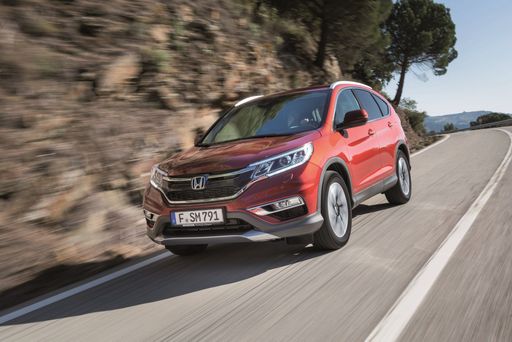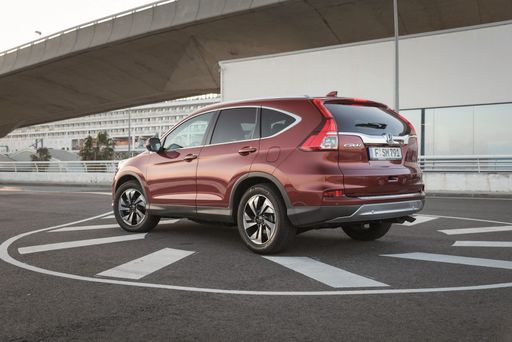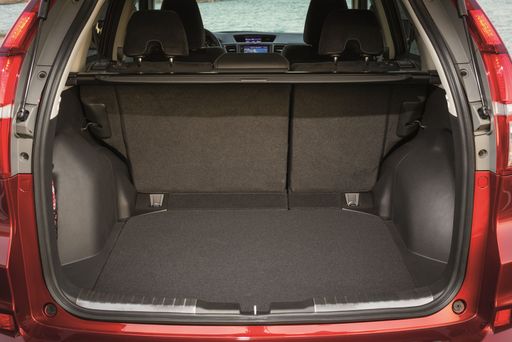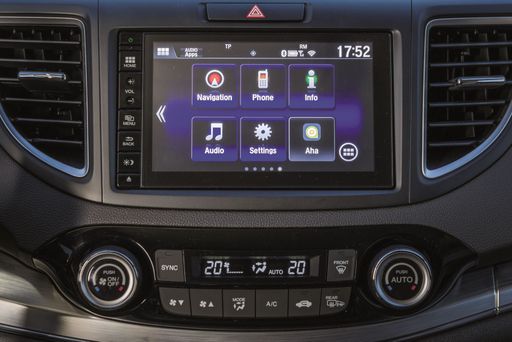Honda CR-V vs Peugeot 208 – Performance, range & efficiency compared
Both models have their strengths – but which one suits you more?
Compare performance, efficiency, price and space directly: Honda CR-V or Peugeot 208?
Here’s where it gets real: The technical differences in detail
Costs and Efficiency: Price and efficiency are key factors when choosing a car – and this is often where the real differences emerge.
Peugeot 208 has a markedly advantage in terms of price – it starts at 20700 £, while the Honda CR-V costs 42800 £. That’s a price difference of around 22089 £.
Fuel consumption also shows a difference: the Honda CR-V manages with 0.90 L and is therefore markedly more efficient than the Peugeot 208 with 4.50 L. The difference is about 3.60 L per 100 km.
As for range, the Peugeot 208 performs decisively better – achieving up to 432 km, about 353 km more than the Honda CR-V.
Engine and Performance: Under the bonnet, it becomes clear which model is tuned for sportiness and which one takes the lead when you hit the accelerator.
When it comes to engine power, the Honda CR-V has a somewhat edge – offering 184 HP compared to 156 HP. That’s roughly 28 HP more horsepower.
In acceleration from 0 to 100 km/h, the Peugeot 208 is slight quicker – completing the sprint in 8.30 s, while the Honda CR-V takes 9 s. That’s about 0.70 s faster.
In terms of top speed, the Peugeot 208 performs minimal better – reaching 200 km/h, while the Honda CR-V tops out at 195 km/h. The difference is around 5 km/h.
There’s also a difference in torque: the Honda CR-V pulls a bit stronger with 335 Nm compared to 270 Nm. That’s about 65 Nm difference.
Space and Everyday Use: Whether family car or daily driver – which one offers more room, flexibility and comfort?
Both vehicles offer seating for 5 people.
In curb weight, the Peugeot 208 is markedly lighter – 1165 kg compared to 1821 kg. The difference is around 656 kg.
In terms of boot space, the Honda CR-V offers decisively more room – 617 L compared to 352 L. That’s a difference of about 265 L.
In maximum load capacity, the Honda CR-V performs visibly better – up to 1710 L, which is about 547 L more than the Peugeot 208.
When it comes to payload, Honda CR-V hardly any takes the win – 475 kg compared to 430 kg. That’s a difference of about 45 kg.
All in all, the Honda CR-V shows itself to be wins this duel convincingly and secures the title of DriveDuel Champion.
It impresses with the more balanced overall package and proves to be the more versatile companion for everyday use.
Honda CR-V
The Honda CR-V presents a blend of practicality and comfort, making it a reliable choice for families and adventure seekers alike. With its spacious interior and refined design, it offers a pleasant driving experience whether in urban environments or on long road trips. This model also boasts a range of advanced safety features, enhancing driver confidence and passenger security.
details @ hondanews.eu
@ hondanews.eu
 @ hondanews.eu
@ hondanews.eu
 @ hondanews.eu
@ hondanews.eu
 @ hondanews.eu
@ hondanews.eu
Peugeot 208
The Peugeot 208 exudes a distinctive French charm, combining sleek lines with an assertive stance on the road. Inside, it offers a modern and sophisticated cabin, complete with intuitive technology and high-quality finishes to enhance the driving experience. Its agile handling and efficient performance make it a delightful choice for both city commuting and longer journeys.
details @ www.media.stellantis.com
@ www.media.stellantis.com
 @ www.media.stellantis.com
@ www.media.stellantis.com
 @ www.media.stellantis.com
@ www.media.stellantis.com
 @ www.media.stellantis.com
@ www.media.stellantis.com

|

|
|
|
|
Costs and Consumption |
|
|---|---|
|
Price
42800 - 52100 £
|
Price
20700 - 35200 £
|
|
Consumption L/100km
0.9 - 6.7 L
|
Consumption L/100km
4.5 - 5.2 L
|
|
Consumption kWh/100km
-
|
Consumption kWh/100km
14.1 - 15.4 kWh
|
|
Electric Range
79 km
|
Electric Range
362 - 432 km
|
|
Battery Capacity
-
|
Battery Capacity
46 - 51 kWh
|
|
co2
19 - 152 g/km
|
co2
0 - 117 g/km
|
|
Fuel tank capacity
46 - 57 L
|
Fuel tank capacity
44 L
|
Dimensions and Body |
|
|---|---|
|
Body Type
SUV
|
Body Type
Hatchback
|
|
Seats
5
|
Seats
5
|
|
Doors
5
|
Doors
5
|
|
Curb weight
1821 - 1988 kg
|
Curb weight
1165 - 1530 kg
|
|
Trunk capacity
579 - 617 L
|
Trunk capacity
309 - 352 L
|
|
Length
4706 mm
|
Length
4055 mm
|
|
Width
1866 mm
|
Width
1745 mm
|
|
Height
1673 - 1684 mm
|
Height
1430 mm
|
|
Max trunk capacity
1634 - 1710 L
|
Max trunk capacity
1118 - 1163 L
|
|
Payload
439 - 475 kg
|
Payload
380 - 430 kg
|
Engine and Performance |
|
|---|---|
|
Engine Type
Plugin Hybrid, Full Hybrid
|
Engine Type
Petrol, Electric, Petrol MHEV
|
|
Transmission
Automatic
|
Transmission
Manuel, Automatic
|
|
Transmission Detail
CVT
|
Transmission Detail
Manual Gearbox, Reduction Gearbox, Dual-Clutch Automatic
|
|
Drive Type
Front-Wheel Drive, All-Wheel Drive
|
Drive Type
Front-Wheel Drive
|
|
Power HP
184 HP
|
Power HP
101 - 156 HP
|
|
Acceleration 0-100km/h
9 - 9.5 s
|
Acceleration 0-100km/h
8.3 - 10.9 s
|
|
Max Speed
187 - 195 km/h
|
Max Speed
150 - 200 km/h
|
|
Torque
335 Nm
|
Torque
205 - 270 Nm
|
|
Number of Cylinders
4
|
Number of Cylinders
3
|
|
Power kW
135 kW
|
Power kW
74 - 115 kW
|
|
Engine capacity
1993 cm3
|
Engine capacity
1199 cm3
|
General |
|
|---|---|
|
Model Year
2024 - 2025
|
Model Year
2023 - 2025
|
|
CO2 Efficiency Class
B, D, E
|
CO2 Efficiency Class
D, A, C
|
|
Brand
Honda
|
Brand
Peugeot
|
What drivetrain options does the Honda CR-V have?
The Honda CR-V is available as Front-Wheel Drive or All-Wheel Drive.
The prices and data displayed are estimates based on German list prices and may vary by country. This information is not legally binding.
